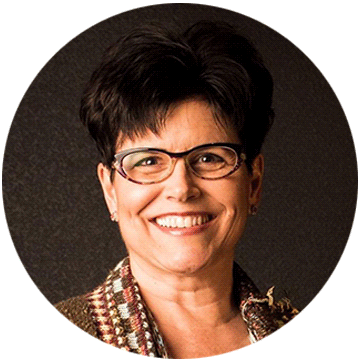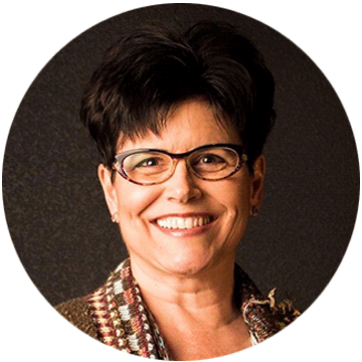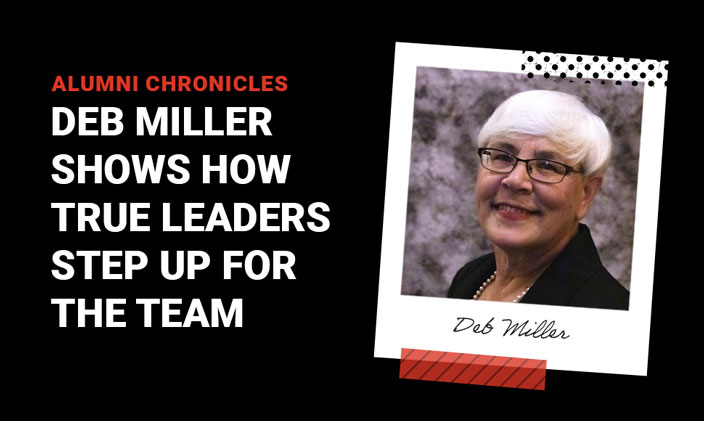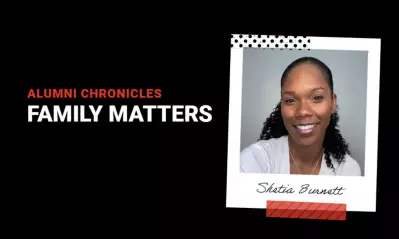Many hats: How Terri Cascia rose through the ranks of her company

Written by Laurie Davies

Short of patient diagnosis, there’s almost no job in the Tenet Healthcare Abrazo Medical Group that Terri Cascia can’t do.
As a medical assistant, she’s checked patient vitals and charted medications. As an information health team manager, she’s helped practices nationwide switch from paper to electronic medical records. Today, she is the market operations manager for Abrazo Medical Group, where she oversees financials, patient satisfaction, staffing decisions and other business operations for the group’s primary care providers and most of the cardiovascular and bariatric providers.
“Basically, I oversee everything that keeps an office running,” she says.
Nestled — nudged, really — into the middle of those roles was a nagging desire that she’d need to finish her college degree. Like many University of Phoenix students, her path to earning a degree was unconventional. She had some starts and stops.

Tragedy also played a role. Her ex-husband was killed in a car crash in 2009, leaving her with the sobering prospect of supporting their kids, ages 12 and 15, by herself. “I knew I could not continue to survive off of a medical assistant salary,” Cascia says.
In the end, her path to earning a Bachelor of Science in Information Technology continued to graduate school, where she earned a Master of Health Administration (Competency-Based) in October 2022. Fresh off that success, she took a few minutes recently to reflect.
“It’s a strong brand,” says Cascia, referring to University of Phoenix. “‘We rise’ really resonated with me.” She notes she was at the bottom of the totem pole when she entered healthcare. “Not anymore,” she says. She’s one position below the chief operating officer of the company and was recently nominated for the Emerging Leader award by Career Mastered magazine. “I did rise,” she says.
Here’s her inspiring story.
Getting a fresh start
When she got the news her ex-husband had been tragically killed, everything changed for Cascia. She had already been the primary source of financial support, but now she was without the prospect of any support from her kids’ dad. On top of that, the sudden loss left the kids reeling. She took six months off to be home with her family.
She did enroll at her local community college, but the timing wasn’t right. The kids needed her, and she was moving into the IT side of things at work — traveling often as she managed an information health systems team tasked with transitioning paper medical records to electronic medical records in markets all over the United States.
Even as she took on more responsibility at work, a persistent thought nagged at her. “I knew to move up any further in my company I had to have a degree,” she says.
Finally, in her late 40s, she enrolled at University of Phoenix.
“For the role I’m in now, everyone except me had a bachelor’s degree. I had been in the medical field for 24 years, but I knew my lack of degree was eventually going to come up. I knew if I was going to go anywhere else in the company or to another company, I needed my degree,” she says.
Starting her journey to becoming a Phoenix brought many insecurities, Cascia says. “Can I still do this at my age, pushing 50? Do I have time to do this with family, senior leadership responsibilities at work, and now homework? Is it worth the sacrifices, loss of sleep and loss of social activities?”
Her answer was a resounding yes. So much so that she didn’t stop there.
“She’s willing to do it all”
“I was already 48 years old … tired and achy without adding late nights to my plate. But I would close my work computer at 4:30 p.m., give myself a little time, and then open up my school computer,” she says. With eligible credits she had strung together from earlier classes and the college credits she earned for professional medical certifications, she hit the ground running on her BSIT, which she earned in 2021 after two years.
Her employer supported her on two major fronts. First, Cascia paid reduced tuition through University of Phoenix’s alliance with Tenet Healthcare. “Also, my employer gave me all the time and space I needed to get this done, including leaving me alone after-hours in a job that is sometimes an after-hours type of job.”
That work-life balance has carried over into how she manages her own staff.
Chelsie Hamblen, a practice manager who reports to Cascia, says, “Honestly, in the eight years I’ve worked in healthcare, I don’t think I’ve ever had such an accommodating leader that respects and knows the boundaries between work and home life.”
Hamblen also appreciates the way Cascia rolls up her sleeves and jumps right in. “Even now, if she walks into my clinic and sees that someone is running late, she’ll grab the patient and start rooming them,” Hamblen says, meaning that Cascia will put her former medical assistant hat on to check patient vitals and input medications. “She’s willing to do it all,” Hamblen says.
Continuing on her journey
While earning her bachelor’s, Cascia discovered “there wasn’t a single class I took that I couldn’t apply to a day at work or a day at work that I didn’t apply school to. It was all content that I was a subject matter expert on,” she says.

She graduated with a 4.0 GPA and quickly put in the rearview mirror the many late nights spent writing papers. Two months after earning her BSIT, Cascia enrolled in University of Phoenix’s competency-based MHA program, a degree program designed for working professionals with at least three years’ experience in a healthcare environment. The degree can be completed in less than 12 months for under $11,000. “A lot of that was brand-new material. I was challenged the entire time,” she says.
Both diplomas hang proudly on her office wall, above her computer screen — right where she can see them. “I look at them all the time,” she says.
Reflecting now, it’s funny to Cascia that she wasn’t sure if she had what it took to earn one degree — and she pressed forward to earn two.
She set out to earn her bachelor’s degree because she wanted career mobility, and she wanted to show her kids that she had dreams. In the end, she showed herself something too. “I wanted to prove to myself that I could finish any goal. It didn’t matter how old I was,” she says. “I get choked up when I feel the pride that comes from this accomplishment. It was so exhausting, but it’s one of my biggest accomplishments.”

ABOUT THE AUTHOR
A journalist-turned-marketer, Laurie Davies has been writing since her high school advanced composition teacher told her she broke too many rules. She has worked with University of Phoenix since 2017, and currently splits her time between blogging and serving as lead writer on the University’s Academic Annual Report. Previously, she has written marketing content for MADD, Kaiser Permanente, Massage Envy, UPS, and other national brands. She lives in the Phoenix area with her husband and son, who is the best story she’s ever written.
This article has been vetted by University of Phoenix's editorial advisory committee.
Read more about our editorial process.
Read more articles like this:


